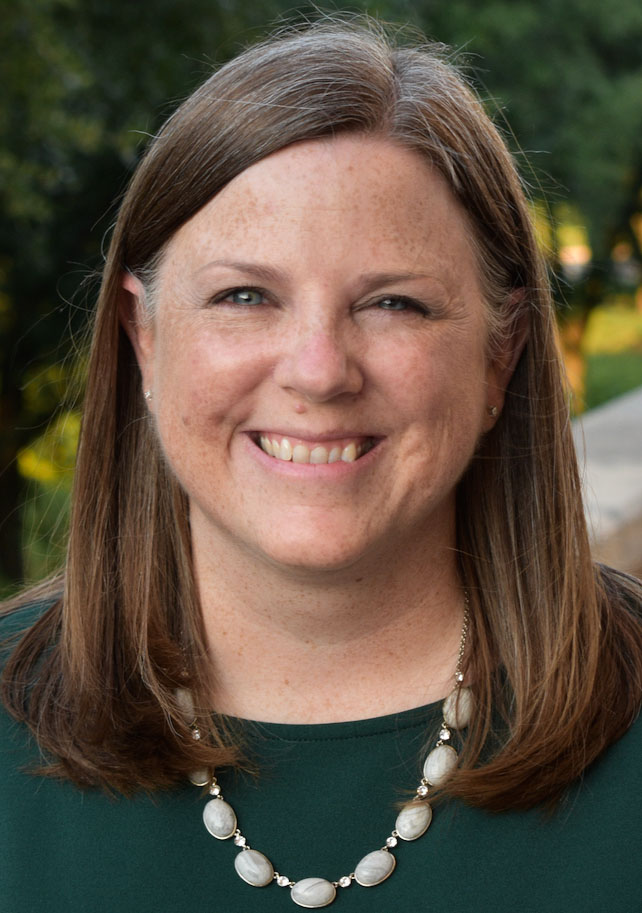In my work advocating for women in ministry for more than a decade, there have been many instances in which a conversation with a male pastor or religious leader has included some form of the following: “Our church/organization decided about women in ministry a long time ago. It is not an issue for us anymore.”
While that may be true in some churches or organizations where men are still in senior leadership positions, the ways in which patriarchy is embedded within the fabric of what it has meant to be called “Baptist” means it is most likely not true. Two pieces of news this past week offer confirmation.

Meredith Stone
First, the Executive Committee of the Southern Baptist Convention once again felt the need to reiterate its oppressive position regarding women’s leadership in pastoral ministry by disfellowshipping several churches for giving women the title of pastor, including their largest member church, Saddleback.
The SBC has made its position on women clear. We all know where they stand and who is and isn’t welcome. So why the constant need to demonstrate their prejudice?
Social-scientific studies explain that in order for power to be maintained it must constantly be exerted. This is why militaries occupy lands and don’t just conquer them. Continual control over occupied lands then must be exercised through means such as excessive taxation, ideological narratives and political directives.
In a similar vein, the leadership of the SBC is disfellowshipping churches that call women to pastoral roles as a part of their wielding of power, which must happen continually in order to stay in control. They are willing to take what they have measured to be a small loss (some might argue Saddleback isn’t small) for the sake of maintaining power.
Constant control can only be counteracted with resistance that is more persistent than the methods of control.
So here is the lesson to be learned for Baptists who support women in ministry: Constant control can only be counteracted with resistance that is more persistent than the methods of control.
Patriarchy has been a source of power and control in Christianity for more than 2,000 years. We cannot combat the effects amassed by this enduring exertion of power in just one decision, a few ordinations or even by hiring the congregation’s first female pastor. Our resistance must be stronger and more persistent than the exertion; therefore, the equality and equity of women is still an issue in all Baptist spaces.
The second piece of news this week demonstrates why it is still an issue in all Baptist spaces. Last week, BNG reported that Northern Seminary, a school with Baptist heritage, has placed its president, Bill Shiell, former CBF pastor, on indefinite leave following allegations of bullying and retaliation against female staff.
Northern Seminary is widely known for its active and public support for women in ministry. In the past several years, a Center for Women in Leadership was created as a part of the seminary; women have been appointed in senior administrative positions, including a New Testament scholar of women and the early church, Lynn Cohick; and Scot McKnight, a leading voice of advocacy for women in ministry, also serves on the faculty.
Despite these public actions of support for women in ministry and leadership, the women quoted in news accounts describe President Shiell’s use of manipulation, “accountability” meetings, gaslighting (telling someone that something which is true is not true repetitively to make them begin to question themselves), how he was dismissive of women of color in interviews, and more. However, it is also reported that when women brought their concerns to the board, they were retaliated against and made the target of scrutiny.
“Even when resistance is applied, patriarchy, which is inextricably intertwined with racism, will find a way to exert control.”
Even when resistance is applied, patriarchy, which is inextricably intertwined with racism, will find a way to exert control.
Scot McKnight and Laura Barringer’s book, A Church Called Tov: Forming a Goodness Culture that Resists Abuses of Power and Promotes Healing, uses Bill Hybels’ leadership at Willow Creek Church as an example to describe toxic leadership cultures. Some aspects of this kind of culture include the use of fear in leadership, isolating individuals, crafting a different public narrative than the way leadership is exercised in smaller groups, gaslighting, and other means of control. The book also describes how such toxic leadership is directly connected to patriarchy’s effects in the church, even though Hybels was publicly an advocate for women in ministry.
Citing Lisa Oakley and Justin Humphrey’s Escaping the Maze of Spiritual Abuse, McKnight and Barringer link toxic leadership in the religious spaces to spiritual abuse — a form of emotional and psychological abuse characterized by a systematic pattern of coercive and controlling behavior in a religious context, which can have a deeply damaging impact on those who experience it.
Spiritual abuse may include manipulation and exploitation, censorship of decision making, requirements for secrecy and silence, coercion to conform, inability to ask questions, control through the use of sacred texts or teaching, requirement of obedience to the abuser, the suggestion that the abuser has a “divine” position, isolation as a means of punishment, and superiority and elitism.
Part of Baptist Women in Ministry’s work is to hold and honor the stories of women. We seek to create a safe space where women are seen, heard and believed.
So we have heard stories like those expressed by the women at Northern Seminary, stories of toxic leadership and of spiritual abuse. And the majority of the stories we hear are from women in places like Northern where support for women in ministry is spoken as a core value.
According to news reports, board executives emailed faculty, staff and students on Sunday to announce Shiell was taking an indefinite leave of absence to avoid being a distraction to the mission of the seminary. In response to the situation, the faculty, staff and students of Northern Seminary have publicly rallied, including sending letters of opposition and one center director has threatened to suspend operations until the matter is sufficiently addressed and justice is brought to the victims.
Baptists who support women in ministry — like the faculty, staff and students of Northern — must rally to support women who report abuse of any form. While the allegations against President Shiell are still under investigation, there are far too many similar stories in the Baptist world for us to disregard the existence and effects of toxic leadership and spiritual abuse in moderate-to-progressive Baptist spaces.
For those Baptists who support women in ministry and are still aligned with the SBC in some way: This would be a good moment to raise the bar in your resistance. Whether you decide to voluntarily leave the SBC or to stay and push back, their persistent exertion of actions that diminish the personhood of women as divine-image bearers needs relentless challenge.
And for all of us: As the saying goes, sunlight is the best disinfectant. Exercising transparency and shining the light on instances of abuse, abusive leadership and discrimination against women is the best way to raise awareness and take action so we might move toward justice.
May we be a people who shine light on oppression and rally in support of the oppressed.
Meredith Stone serves as executive director of Baptist Women in Ministry.
Related articles:
Northern Seminary’s Shiell on leave while trustees investigate bullying accusations
Southern Baptist Convention ousts its largest church, Saddleback, for having a woman pastor
In the SBC, a cord of three is not easily broken: Debates about sexuality, gender and abuse all twist together | Analysis by Mark Wingfield


